However, seven solid companies weather the storm amidst the chaos and emerge stronger. Below are seven stocks of resilience, each a beacon of stability and growth in tumultuous times.
Read more to delve into these corporations’ fundamentals, triumphs, and strategies that defy conventional market wisdom. In short, these stocks offer financial returns with peace of mind.
International Seaways (INSW)

International Seaways (NYSE:INSW) delivers a solid bottom-line performance. In Q3 2023, International Seaways reported a net income of nearly $100 million, which is equivalent to roughly $2 per diluted share.
This solid performance suggests the company’s capability to derive profits and breed value.
The company’s EBITDA was $151 million for Q3 and exceeded $800 million over the last 12 months. The consistent growth in net income and EPS reflects International Seaways’ capability to deliver strong results despite adversities in the macroeconomic environment and fluctuations in the shipping market.
International Seaways’ focus on returning value to shareholders can be observed through its healthy dividend yield and share buyback programs. The company offered a combined dividend of $1.25 per share, highlighting its financial standing. These dividends and share buybacks contribute to the total returns, with a 16% plus yield on the average market cap during Q3.
Finally, International Seaways’ low cash breakeven level is a key differentiator that boosts its resilience and ability to generate free cash flow even in challenging markets. With a cash break even for the next 12 months under $15K per day, International Seaways shows its ability to cover its operating expenses and debt obligations with minimal revenue. Hence, this low level is based on various factors, including cost-efficient operations, strategic fleet management, and fixed contracted revenue.
Abbott (ABT)
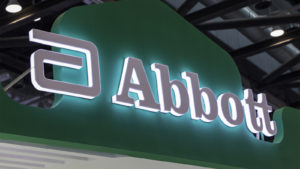
Abbott’s (NYSE: ABT) strategically accelerated investments during the peak of COVID testing demand, particularly in Research & Development (R&D). These investments led to over 25 new growth opportunities.
Abbott strategically accelerated investments during the peak of COVID testing demand, particularly in research & development. The company announced over 25 new growth opportunities across various segments in the last two years, including new products, indications, and geographic expansions.
There were business-specific investments. These include agreements for biosimilar commercialization in emerging markets, investment in science-based solutions for adult nutrition, new diagnostic tests and instruments, and new product approvals in medical devices.
Sales in the nutrition segment increased by 14% in Q4, with significant growth in pediatric and adult nutrition categories. Established Pharmaceuticals sales grew nearly 9% in the quarter and 11% for the full year, driven by the tailored product portfolios across emerging markets.
Despite seasonal effects on rapid diagnostics, core laboratory diagnostics achieved nearly 10% growth, driven by the success of the Alinity suite. Finally, sales of medical devices grew over 15% in the quarter, with solid performances across various businesses, including diabetes care, electrophysiology, rhythm management, structural heart and neuromodulation.
Pfizer (PFE)
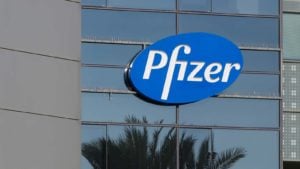
Pfizer (NYSE:PFE) has multiple potential key oncology catalysts in 2024, including the launch of PADCEV in combination with pembrolizumab and XTANDI in specific cancer types.
The recent approval of PADCEV has doubled the addressable population, indicating a significant expansion in market reach.
Pfizer plans Phase 3 data readouts for Vepdegestrant and Braftovi in various cancers. These developments suggest Pfizer’s robust oncology pipeline, which could drive substantial revenue growth.
Beyond oncology, Pfizer is active in Vaccines, Anti-Infectives, Internal Medicine, Metabolic Diseases, Inflammation, and Immunology. This diversified portfolio mitigates risks associated with focusing solely on one therapeutic area. For instance, developing a 4th-generation PCV vaccine candidate and respiratory vaccine combinations demonstrates Pfizer’s focus on addressing prevalent health concerns beyond oncology, potentially expanding its market reach and revenue streams.
Finally, Pfizer’s high R&D budget (one of the highest in the industry) supports its robust pipeline across various therapeutic areas. The company pursues cutting-edge science and leverages AI and digital tools to increase drug development’s speed and success rates. This emphasis on tech advancement positions Pfizer to constantly introduce new products and maintain competitiveness in the pharmaceutical market.
3M (MMM)
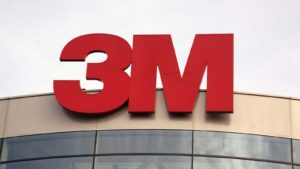
3M’s (NYSE:MMM) strategic priorities include optimizing its portfolio by prioritizing geographies, markets, and products with massive growth potential. The spin-off of its Health Care business, Solventum, shows its focus on core competencies and high-growth segments.
By appointing experienced leaders to oversee the spin-off process, 3M has a strategic approach to unlock value for customers, care providers, patients, and shareholders. The planned optimization of product portfolios based on market potential, supply chain complexity, and margins reflects a forward-thinking strategy to drive long-term growth potency.
Additionally, the identification and exit of low-performing portfolios within the consumer business further points towards 3M’s focus on enhancing value through strategic portfolios.
Moreover, 3M’s robust cash flow generation can be observed by a 30% increase in free cash flow and a conversion rate of 123%, underscores its financial resilience and ability to invest in growth initiatives while returning value to shareholders. Reducing net debt by $2 billion or 17% suggests 3M’s focus on maintaining a solid balance sheet and capital structure.
Finally, the upcoming spin-off of the healthcare business is expected to strengthen the company’s balance sheet further, providing additional liquidity and flexibility to pursue growth opportunities and meet cash flow needs.
Procter & Gamble (PG)
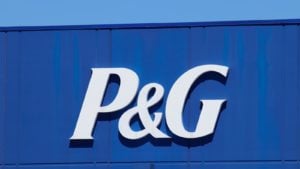
Procter & Gamble’s (NYSE:PG) focus on accelerating volume growth drives its sales performance. Notably, volume growth accelerated significantly in North America, from a decline of three points to a robust 4% (Q2 fiscal) growth over the past five quarters. This acceleration in volume growth indicates Procter & Gamble’s ability to capture market share and expand its customer base effectively.
Additionally, Procter & Gamble can expand its market share. The company’s global aggregate value share increased by 0.4% compared to the previous year, with 28 of its top 50 category-country combinations holding or growing shares. In the US. Procter & Gamble’s all-outlet value share increased by 20 basis points, accompanied by a 0.5% increase in volume share.
Similarly, value share in European focus markets rose by 0.9% over three months. Overall, these gains in market share suggest the company’s strong competitive edge and capability to outperform rivals in key markets.
Restaurant Brands (QSR)
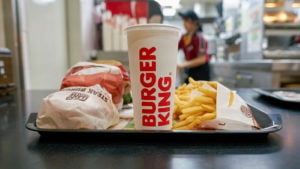
For Restaurant Brands (NYSE:QSR), there is a considerable increase in home market franchise profitability, growing by 30% year-over-year on average (as of Q4 2023).
This indicates that Restaurant Brands has been progressive in enhancing the profitability of its franchisees operating in their primary markets. This increase suggests that the company has implemented sharp strategies or initiatives to improve its operational edge, reduce costs, or increase revenues for its franchise partners.
Similarly, Restaurant Brands experienced robust growth in global system-wide sales at the top-line, with nearly a 10% increase for the fourth quarter and over 12% YoY growth for 2023. This growth suggests the company’s ability to attract customers and drive sales worldwide across its entire network of franchise locations.
Rapid growth in system-wide sales suggests Restaurant Brands’ brands, including Tim Hortons, Burger King, and Popeyes Louisiana Kitchen, suggest the rapid capture of consumer demand.
Finally, the company attained solid comparable sales growth, with nearly 6% YoY growth in Q4. This growth was led by over 8% at Tim Hortons Canada and over 6% at Burger King US. The out performance of key segments such as Tim Hortons Canada and Burger King US suggests the effectiveness of Restaurant Brands’ brand-specific strategies and initiatives targeting different markets. Therefore, these developments may lead to valuation ascension to price in performance.
Kroger (KR)
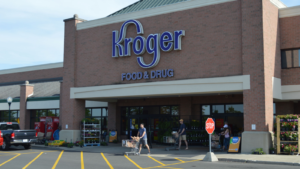
Kroger’s (NYSE:KR) has a solid capability to attract and retain customers. For instance, Kroger attained its 10th consecutive quarter of total household growth (Q3 2023).
This indicates consistent expansion in its customer base. Loyalty programs and personalized promotions have increased engagement, with digitally engaged households growing by 13% in Q3. Digitally engaged households spend nearly three times more with Kroger. Hence, this suggests a solid correlation between engagement and profitability.
The company’s investments in personalized offerings have translated into higher engagement and spending, underpinning Kroger’s potential for continued growth.
On the other hand, Kroger’s digital business has double-digit growth in both pickup and delivery services. This suggests a shift towards online shopping and the effectiveness of Kroger’s digital platforms in capitalizing on shifting demand trends.
Last, the company’s digital sales grew by 11% in Q3, reflecting the increasing consumer adoption of online shopping. Introducing new services like two-hour pickup in one-third of stores increased sales. Overall, these fundamental developments may bring in solid valuation potency for Kroger
As of this writing, Yiannis Zourmpanos held long positions in PFE and MMM. The opinions expressed in this article are those of the writer, subject to the InvestorPlace.com Publishing Guidelines.
Yiannis Zourmpanos is the founder of Yiazou Capital Research, a stock-market research platform designed to elevate the due diligence process through in-depth business analysis.
